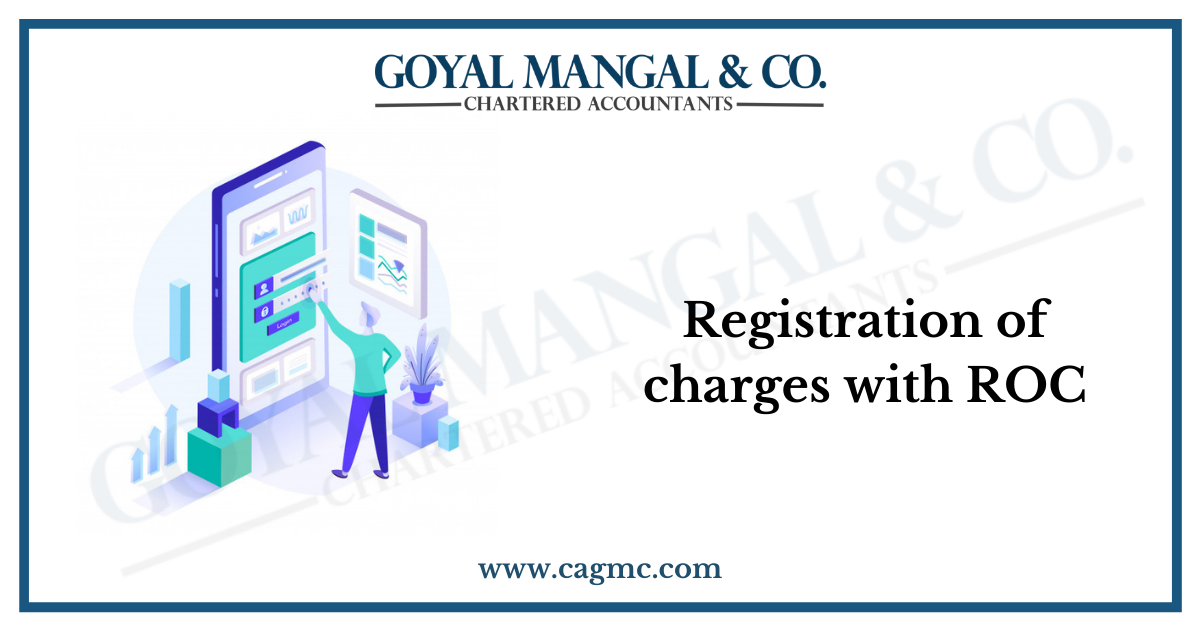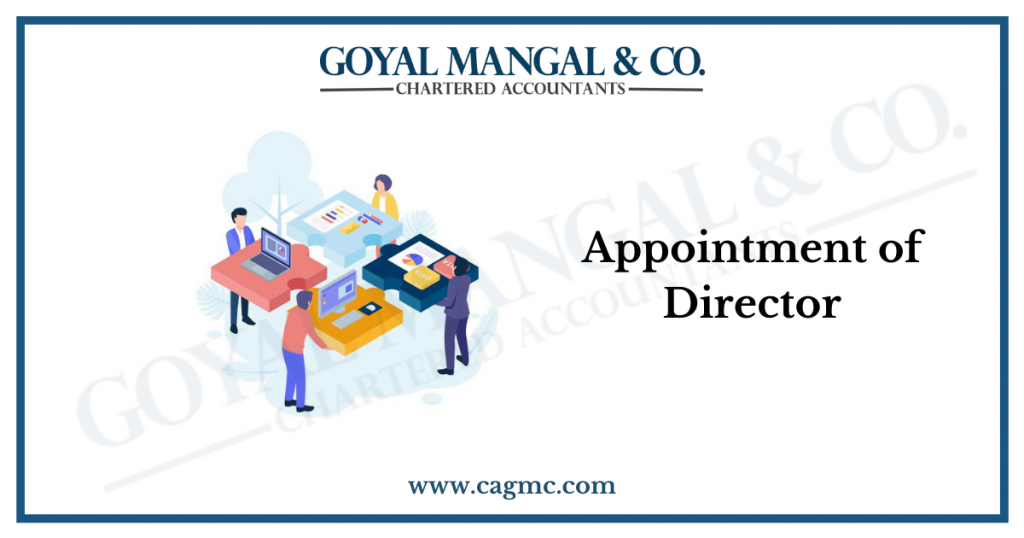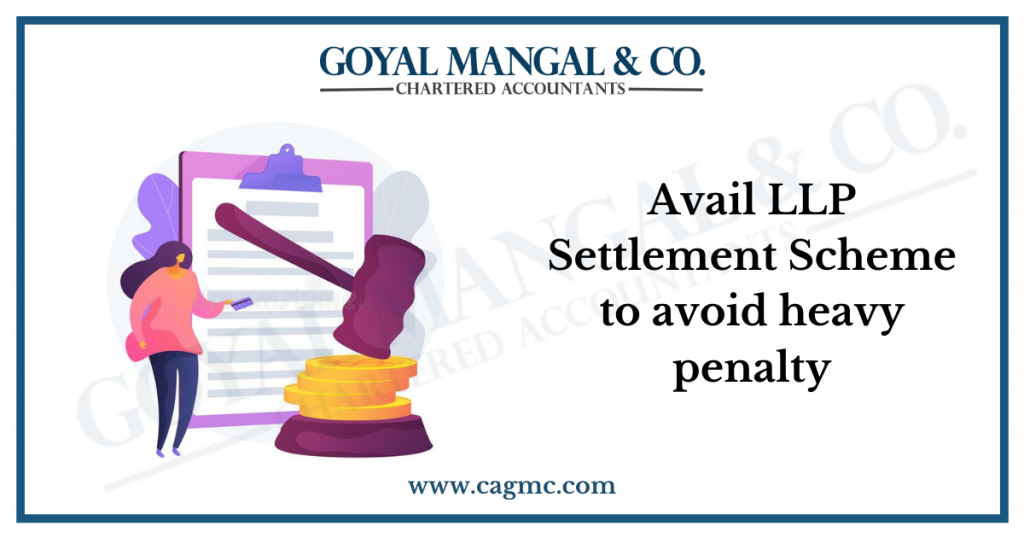A charge is stated in Section 2 (16) of the Companies Act, 2013 which expresses that charge could be
- an interest or lien;
- created on the property or assets of a corporation; and
- any of its undertakings or both as security and includes a mortgage
It is the obligation of every corporation to register with the Registrar of Companies specific charges made by the corporation on its assets. The reason for registration of charge is to offer public notice towards those who contemplate giving credit to the corporation on how far the property of the corporation is encumbered.

As consistent with Companies Act, corporations are required to file particulars of a charge within 30 days of the creation thereof; or else the charge is void against the liquidators and the creditors of the corporation.
There are mainly two classes that charges on a corporation fall into. These are:
- Fixed Charges– Charge against a specific and identifiable property whose identity cannot change throughout the period of the loan
- Floating Charges – These charges are not against any specifically identifiable property as well as cover properties floating or uncertain such as stock-in trades, debtors etc.
Types of charges to be registered Under Companies Act, 2013
As per Section 77 of the Companies Act, 2013, it states that the corporation must register all types of charges with the Registrar of Companies (“ROC”) within 30 days of the creation of that particular charge. It doesn’t matter if the charge created is –
- within or outside India;
- on its property or assets or any of its undertakings;
- whether tangible or otherwise; and
- Situated in or outside India.
Section 77 also states that the additional period could extend to 300 days (30 days in addition with 270 additional days). If the form is filed after 30 days of the normal registration period, it requires to be paid with an additional fee. An application is required to be filed in CHG- 10 from the Company Secretary or Director of the corporation that this late filing would not adversely affect any of the creditors involved in this.
The duty of registration of the charge Under Companies Act, 2013
As per Section 77, it is the duty of the corporation to register charge.
As per Section 78, if the corporation for any reason fails to register for the charge, the individual in whose favour the charge is being created would form for a file of charge. The individual has the right to recovering the registration fee from the corporation. However, the individual filing for the charge has to give a notice of 14 days to the corporation.
Registration of Charge by (Section 77 of the Act) individual creating charge:
- Every individual creating charge must file form CHG-1 within 30 days of such creation
- Though, the extension for filing could be granted by RoC towards the extent of :
- 300 days for charges formed prior to 2nd November 2018 (commencement of Ordinance, 2018). Furthermore, an extension of 6 months could be granted in this case on payment of additional fees as might be prescribed.
- 60 days for charges created on or after 2nd November 2018. Furthermore, an extension of 60 days could be granted if the application is made and additional fees are paid to RoC.
- Though, delay in registration must not affect any right acquired regarding such property.
- Certain charges must not be registered if consulted with Reserve Bank of India.
- RoC would issue a certificate of registration of charge in Form CHG-2.
Effect of registration of this charge
Register of Charge by ROC: As per Section 81, the ROC must maintain a register of charges with regards to every corporation comprising all the particulars concerning the charge. The register is open for examination by any individual on the payment of some prescribed fee.
Deemed Notice: Any individual who is thinking of lending money or who has given money to a corporation could know which of the corporation’s assets are charged and the extent of this charge.
Registration of Charge by (Section 78 of the Act) individual in whose favour charge is created:
- If the individual creating charge fails towards furnishing Form CHG-1 within 30 days of its creation, then individual in whose favour the charge is created could file the same.
- After receipt of such form, RoC registers such charge and might send notice towards showing cause to individual creating a charge for non-filing of such form.
- Such other individual would be entitled to recover from the individual creating a charge for the registration of charge the amount so paid.
Modification of charge Under Companies Act, 2013
Any modification in any terms or conditions or the extent of operations of any charge registered should be registered with RoC.
The process to register the modification of charge is same as that of creation.
Though, in this case, RoC would issue the certificate of registration in Form CHG-3.
Other points of registration Under Companies Act, 2013
Form CHG-1 must be filed for corporation acquiring any property subject towards the charge.
Individual acquiring any property, assets or undertakings or part thereof or any share or interest therein should be deemed to have notice of charge from the date of registration.
Register of charges Under Companies Act, 2013
Registrar must maintain a register of charges for every corporation and must keep it open for inspection by any individual on payment of prescribed fees.
The corporation must maintain a register of charges in Form CHG-7 with instrument creating charge at its registered office and keep it open for inspection in the course of business hours by members or creditors without fees.
Satisfaction of charge Under Companies Act, 2013
The corporation must intimate satisfaction of charges in Form CHG-4 within 30 days as extended till 300 days on approval as well as on payment of additional fees.
In case of delayed filing, RoC might issue show cause notice to Corporation for such delay within 14 days of such receipt.
RoC might consider non-filing of CHG-4 for making entries in register of charges if it is shown through documents that:
- Debt for which charge was formed is satisfied, fully or partially.
- Part of asset or undertaking undercharge was released or has ceased to form part of the Corporation
After making entries RoC must intimate affected parties within 30 days of making entry therein.


